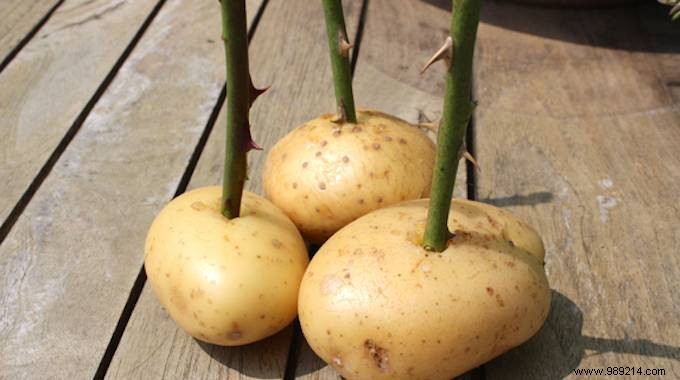
Did you know that you can grow roses? from a single stem?
Sounds amazing, right? But that's not all!
My neighbor who has a superb row of roses revealed his secret to me.
He plants the end of the stem in a potato before burying it.
It sounds crazy, but it really works! Why?
Because this trick helps the stems retain their moisture, while they develop beautiful roots.
Don't worry, it's quite easy to do. Watch:
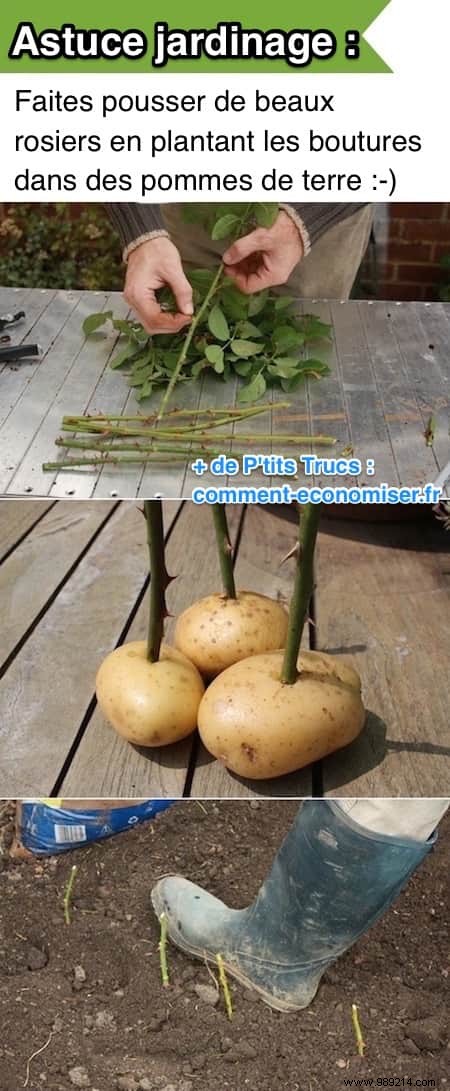
1. Choose a part of the garden that will be shaded during hot hours.
2. Dig a trench 15 cm deep with a vertical edge.
3. Put about 3 cm of sand at the bottom of the trench.
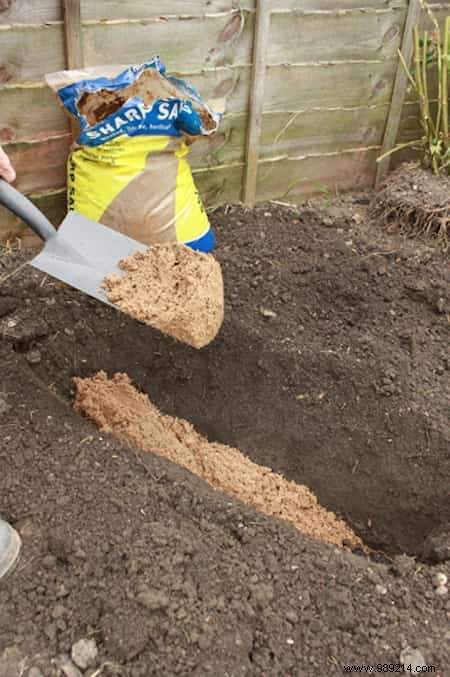
4. Choose a stem on your rose bush the thickness of a pencil. It must be a rod of the year, not an old one. The wood should be straight (no crooked or bifurcated wood) and mature (the thorns should be stiff and break cleanly).
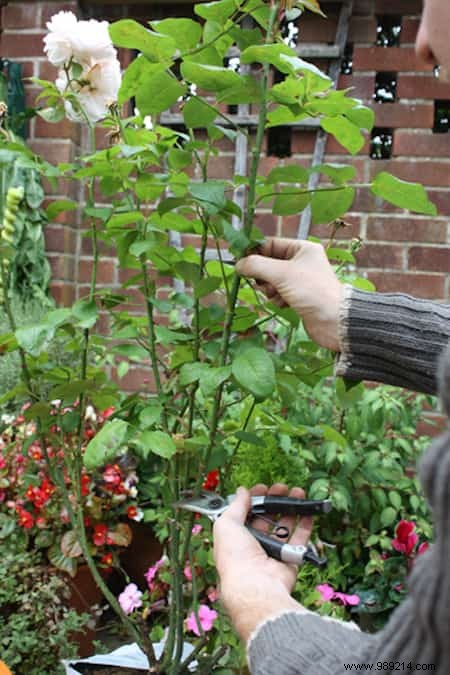
5. Cut the stem to a length of 23 cm long with a good pruner. Cut it just below a bud. Remove the flower that remains, and cut the base at an angle.
6. Remove the leaves and thorns from the bottom half. You can leave two leaves at the top of the cup if you wish. Personally, I remove everything.
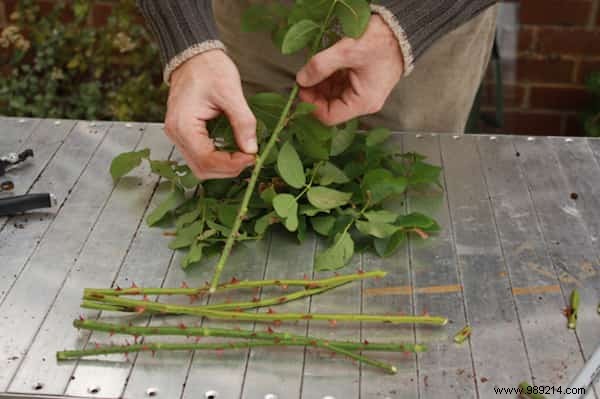
7. Before planting cuttings, put the bottom end in a small potato. This will help keep the cuttings moist while they develop their roots.
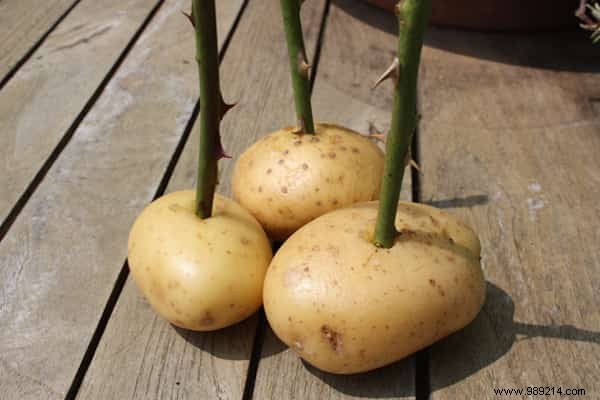
8. Bury each stem two-thirds deep, making sure the potato is well buried in the sand.
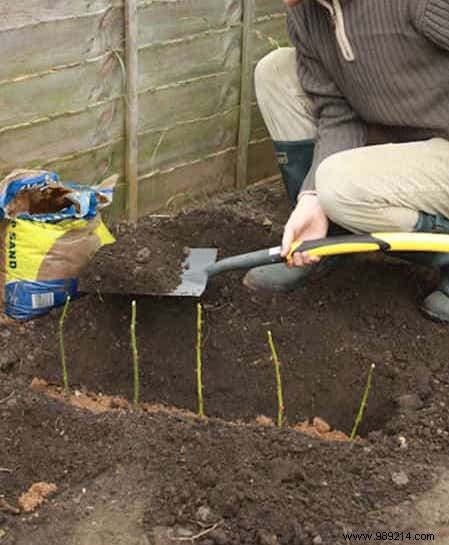
9. Tamp the sand well around the potato, to remove as much air as possible. Space the stems about 15 cm apart.
10. Return the soil to the trench and tamp lightly. Be careful not to damage the cuttings while doing this.
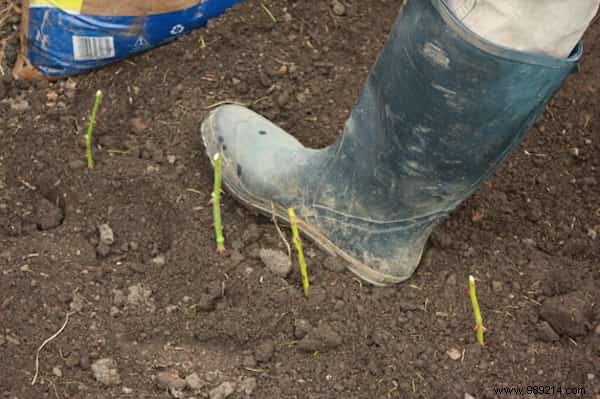
11 . Water the cuttings regularly during the summer. In November, they are ready to be transplanted.

And There you go ! With this technique, you will get beautiful roses easily :-)
The potato which is used as a temporary support helps to maintain the stem in a humid environment.
As the potato naturally contains a lot of water, you are sure that the rose stem will not dry out.
My grandmother always took cuttings from old, very resistant rose bushes.
For example, she used those found in old gardens or in cemeteries.
She said that if they had proven themselves in these conditions, they would inevitably leave!